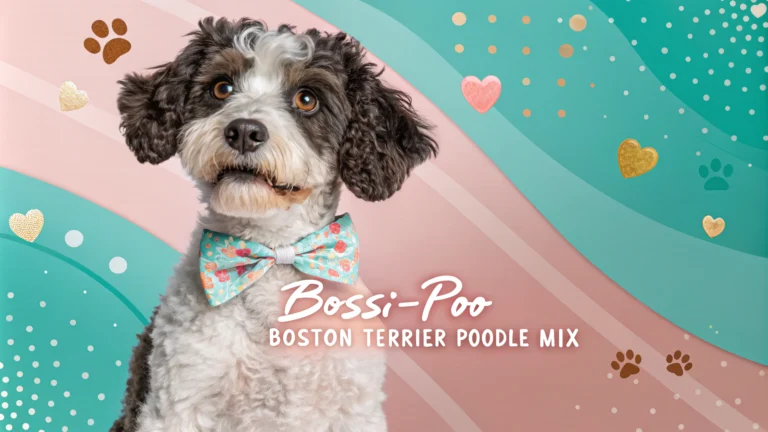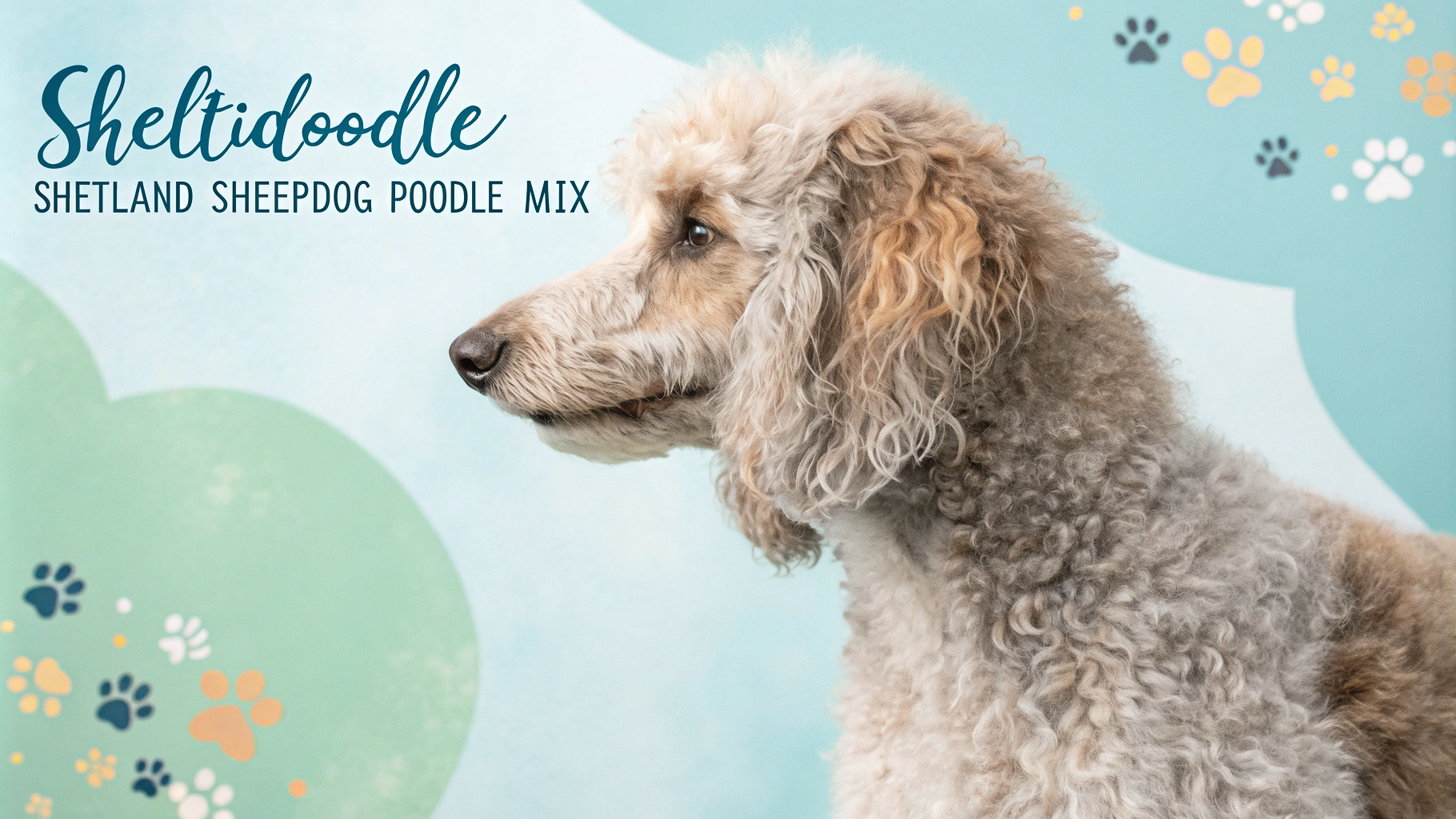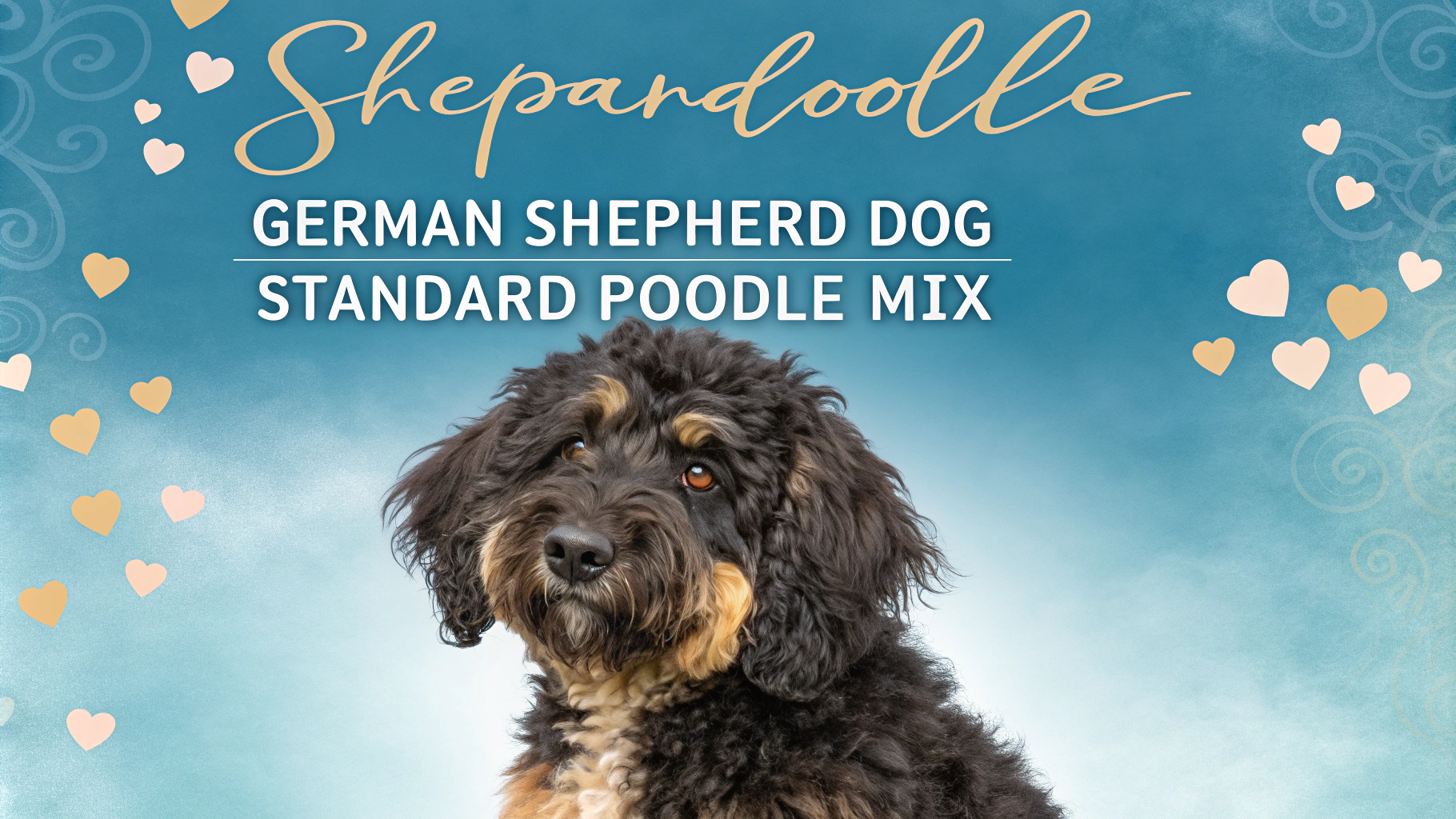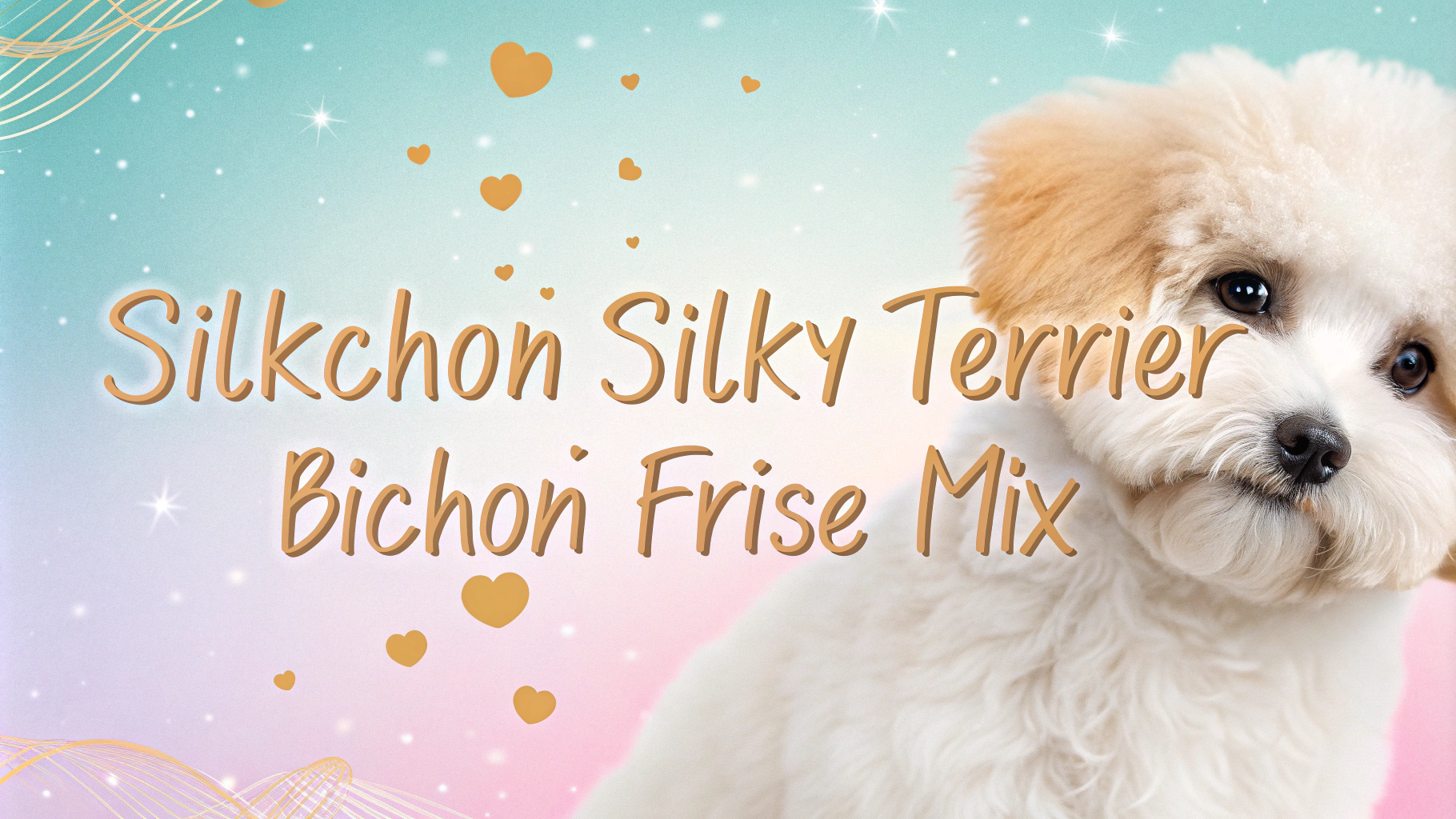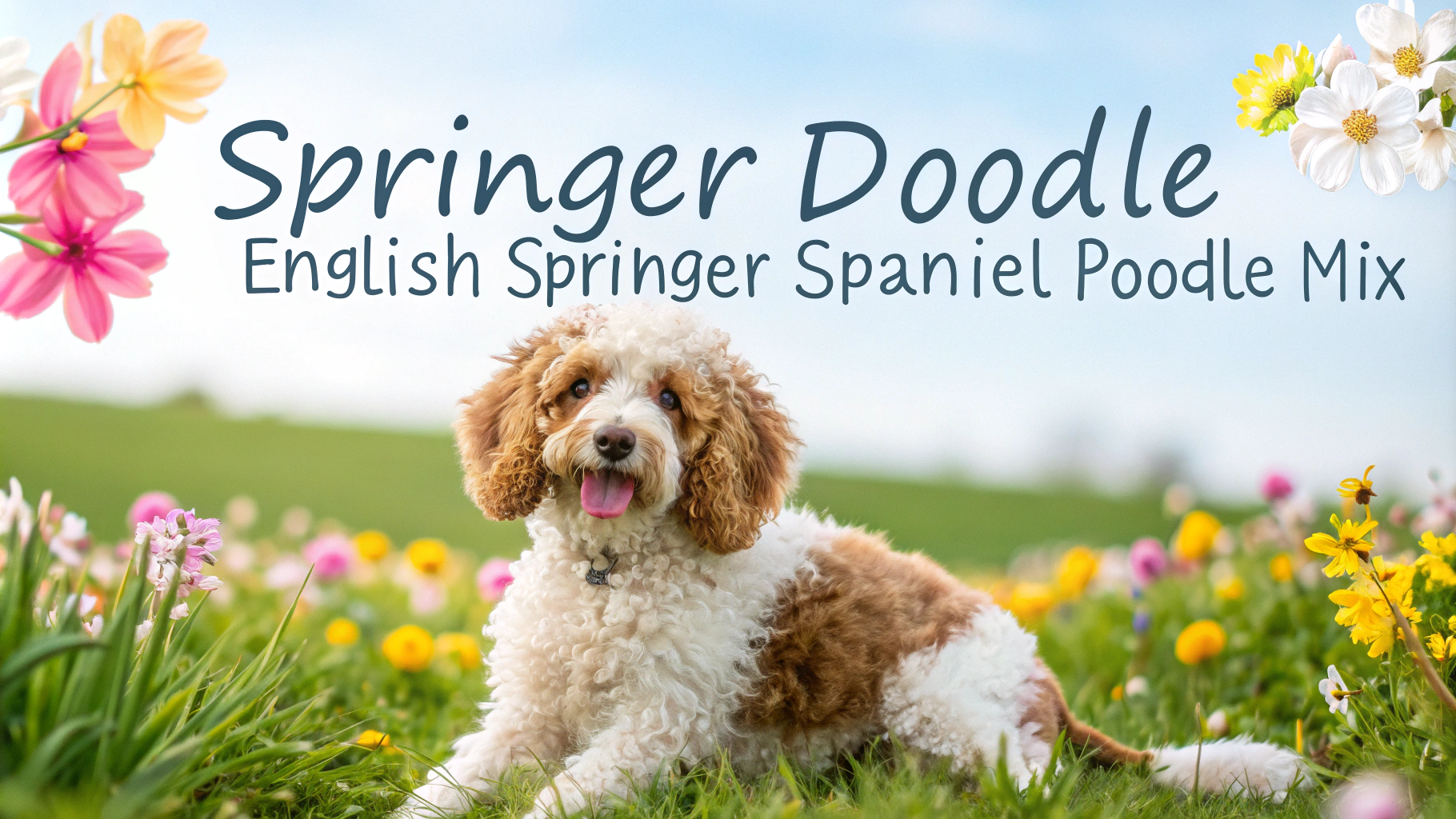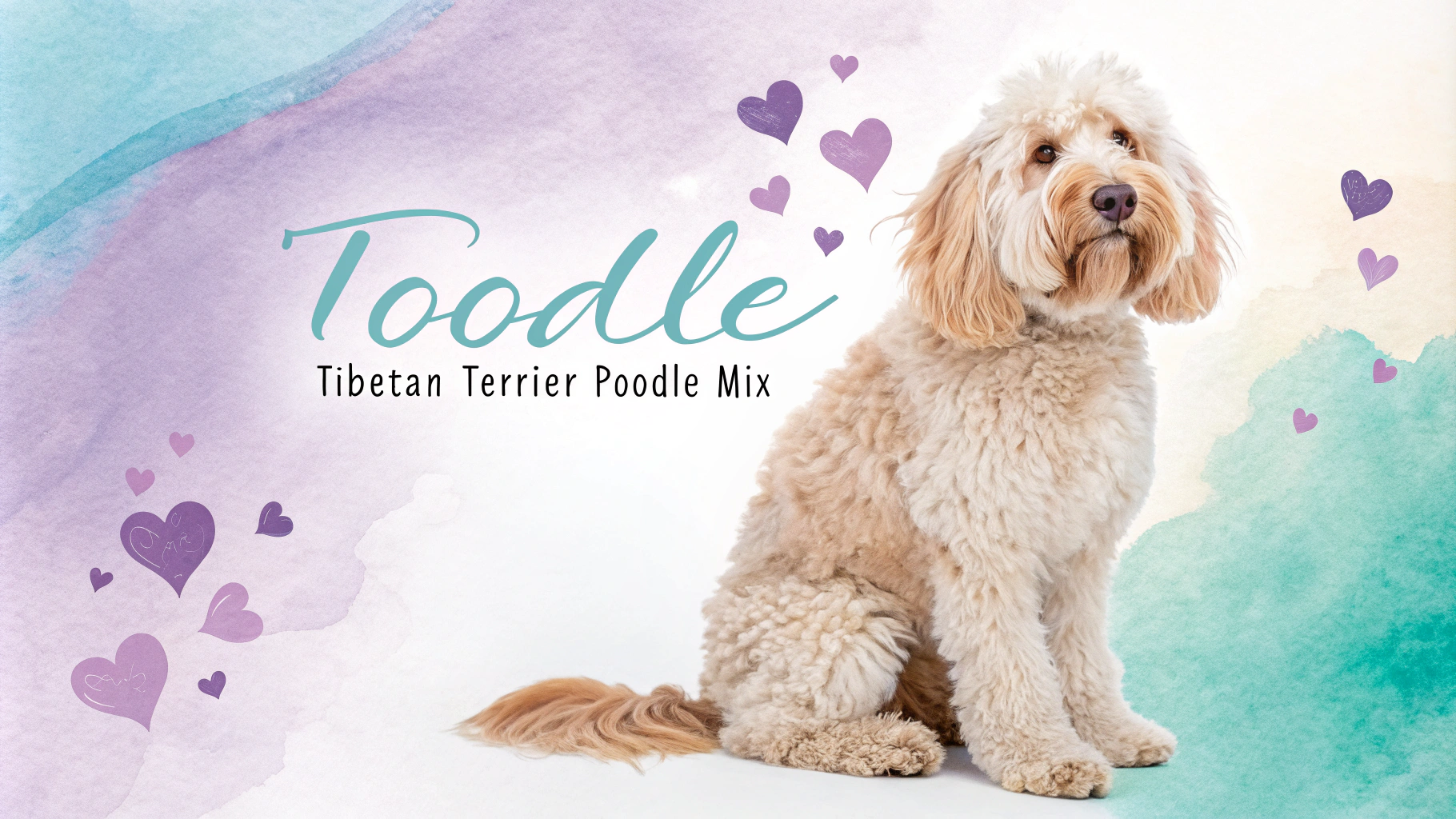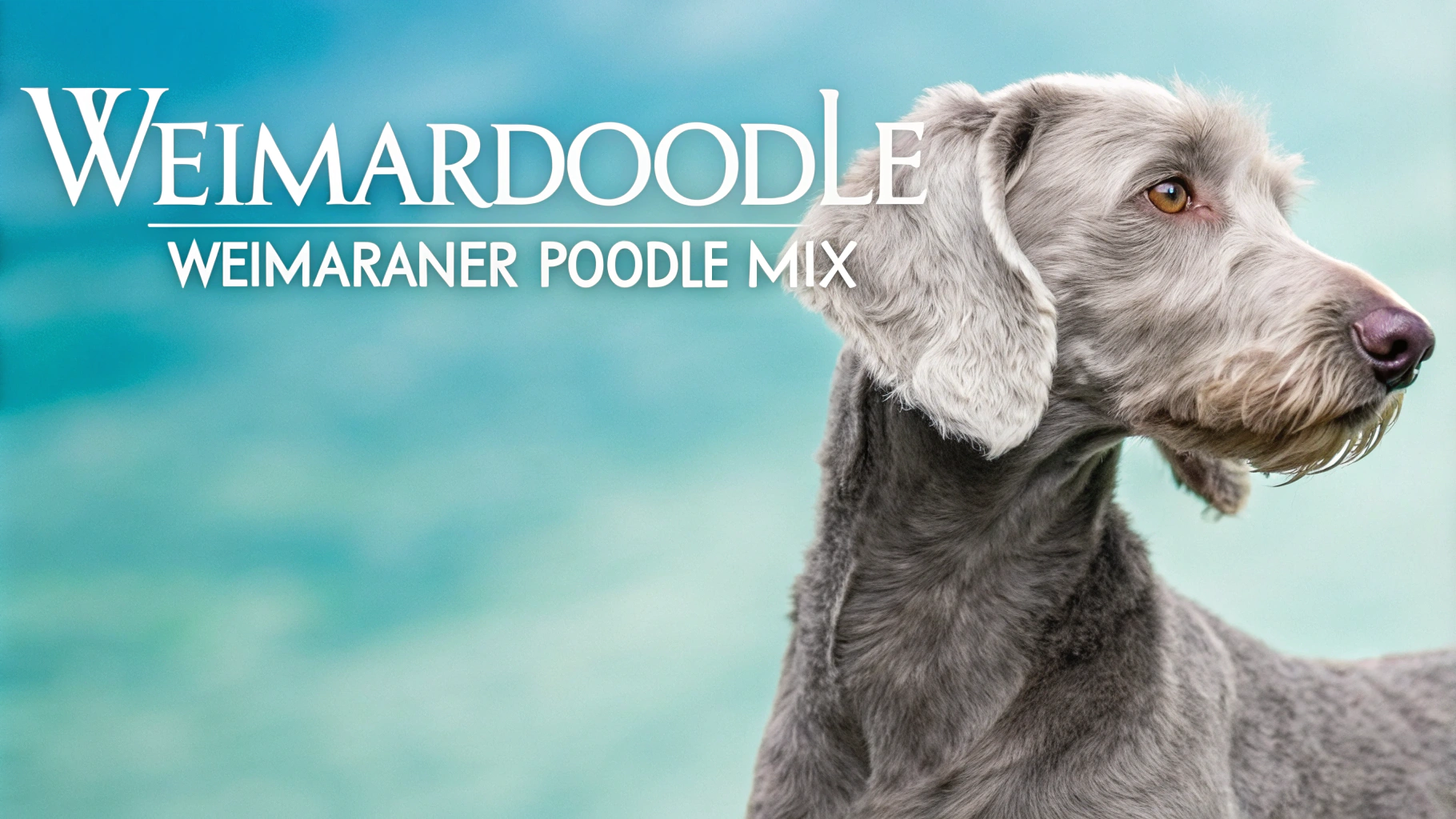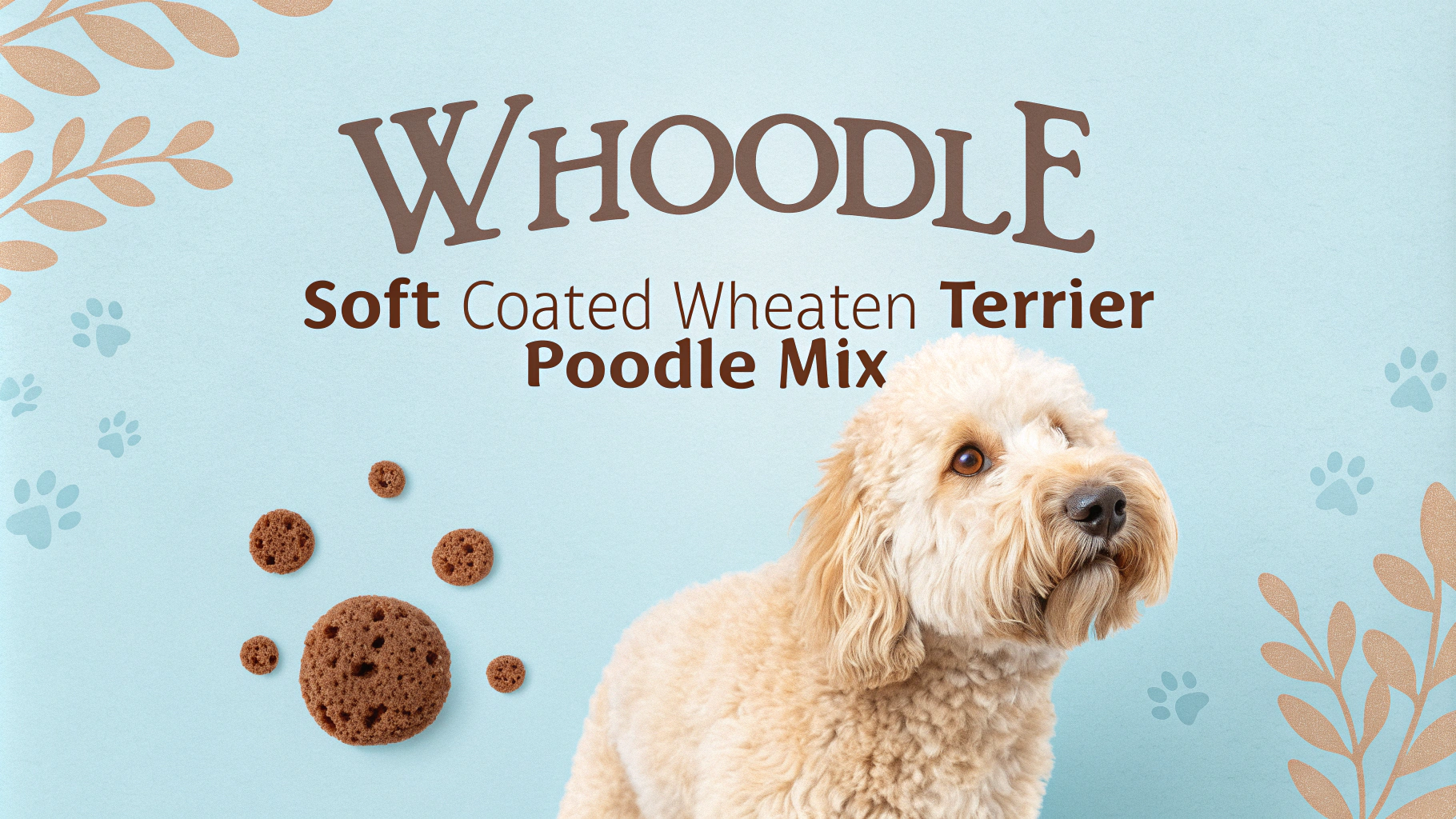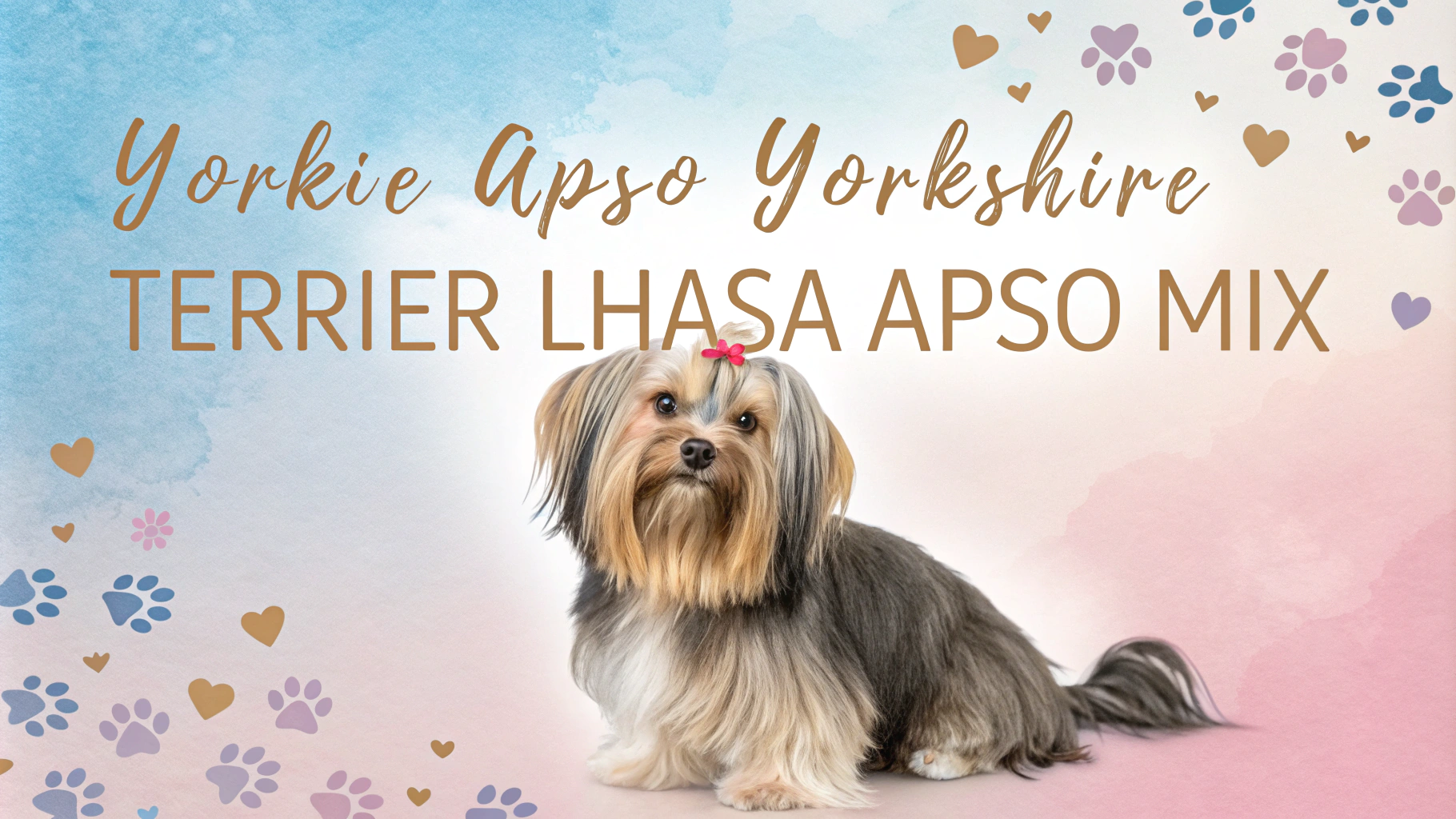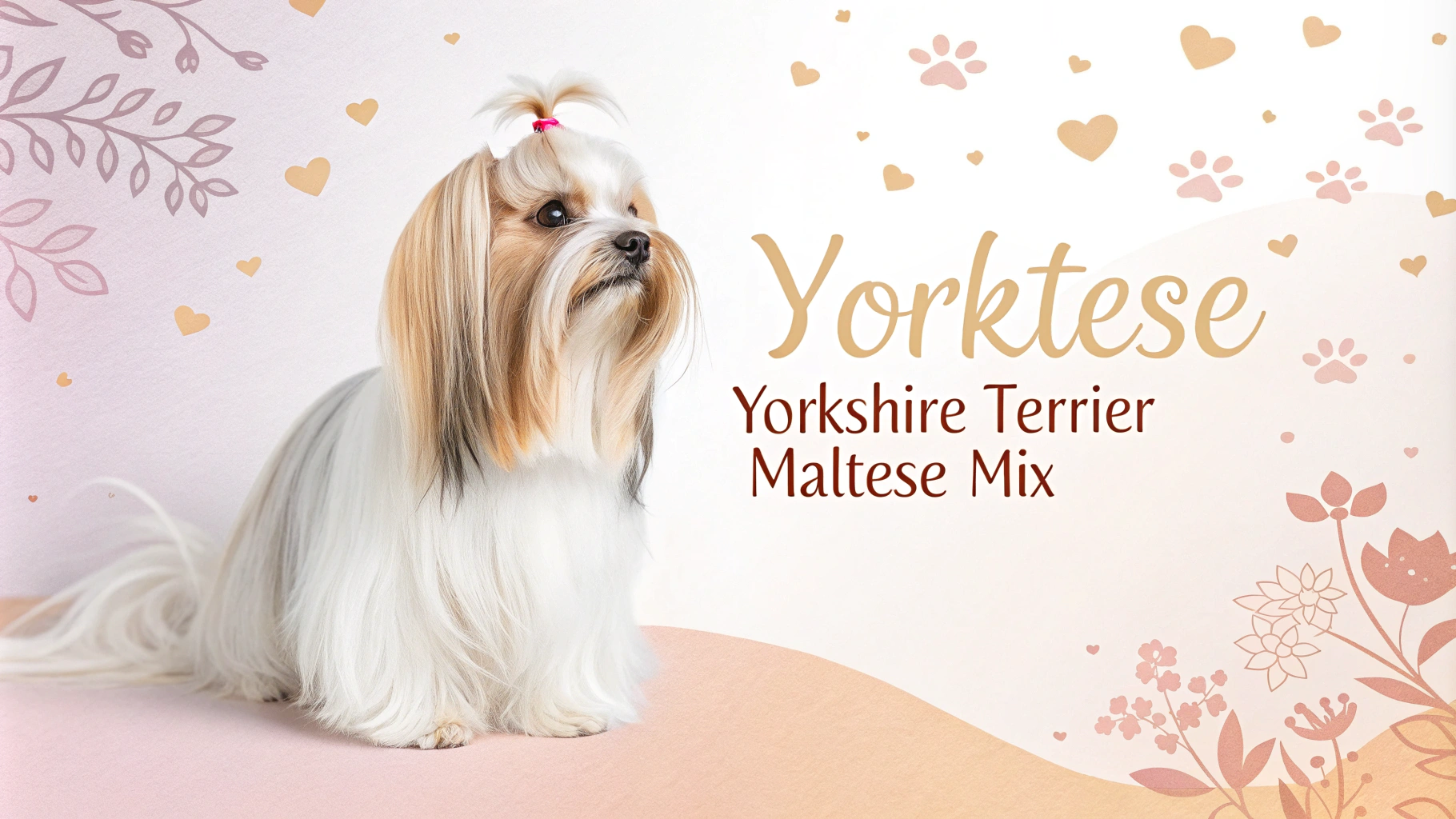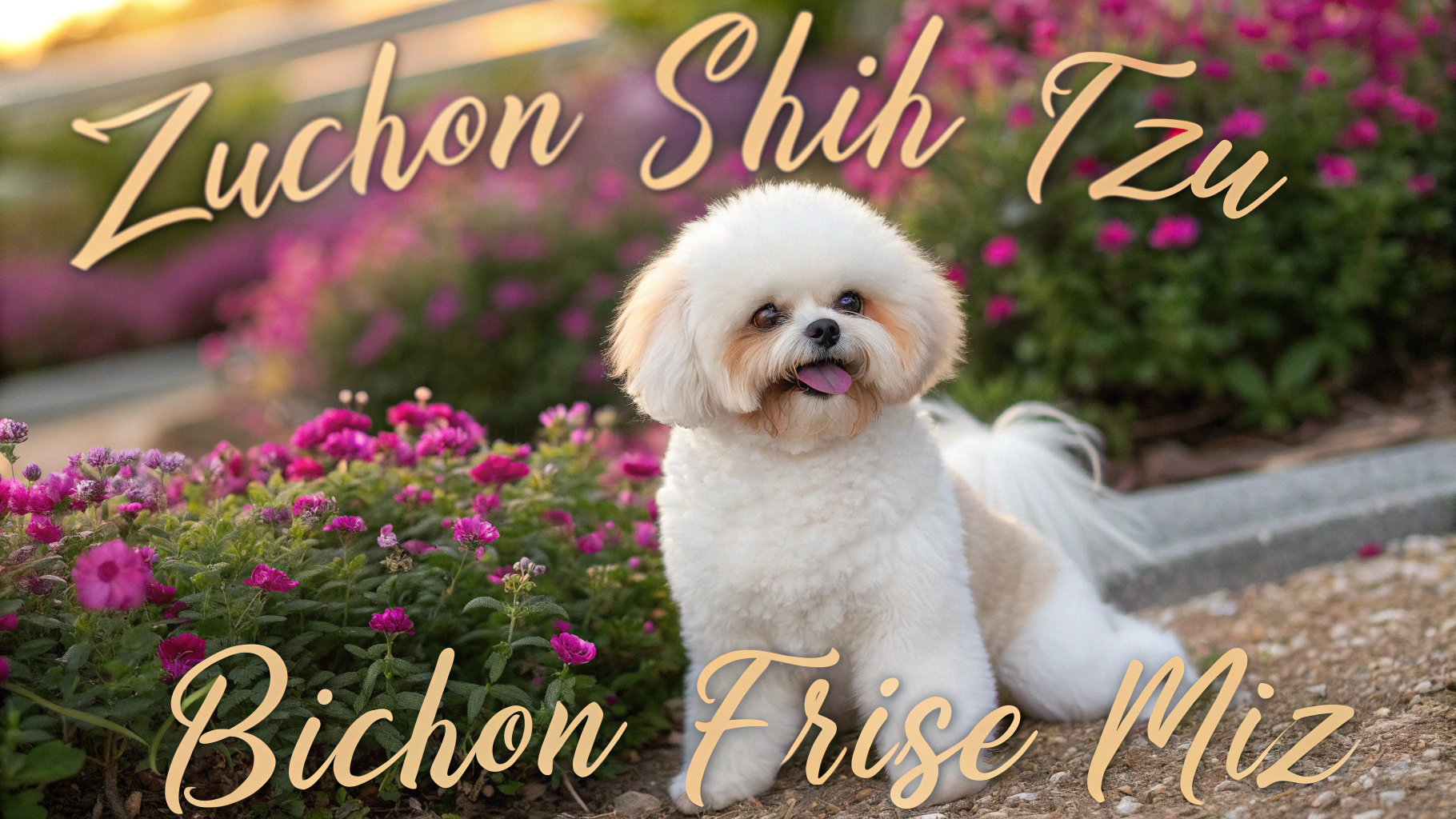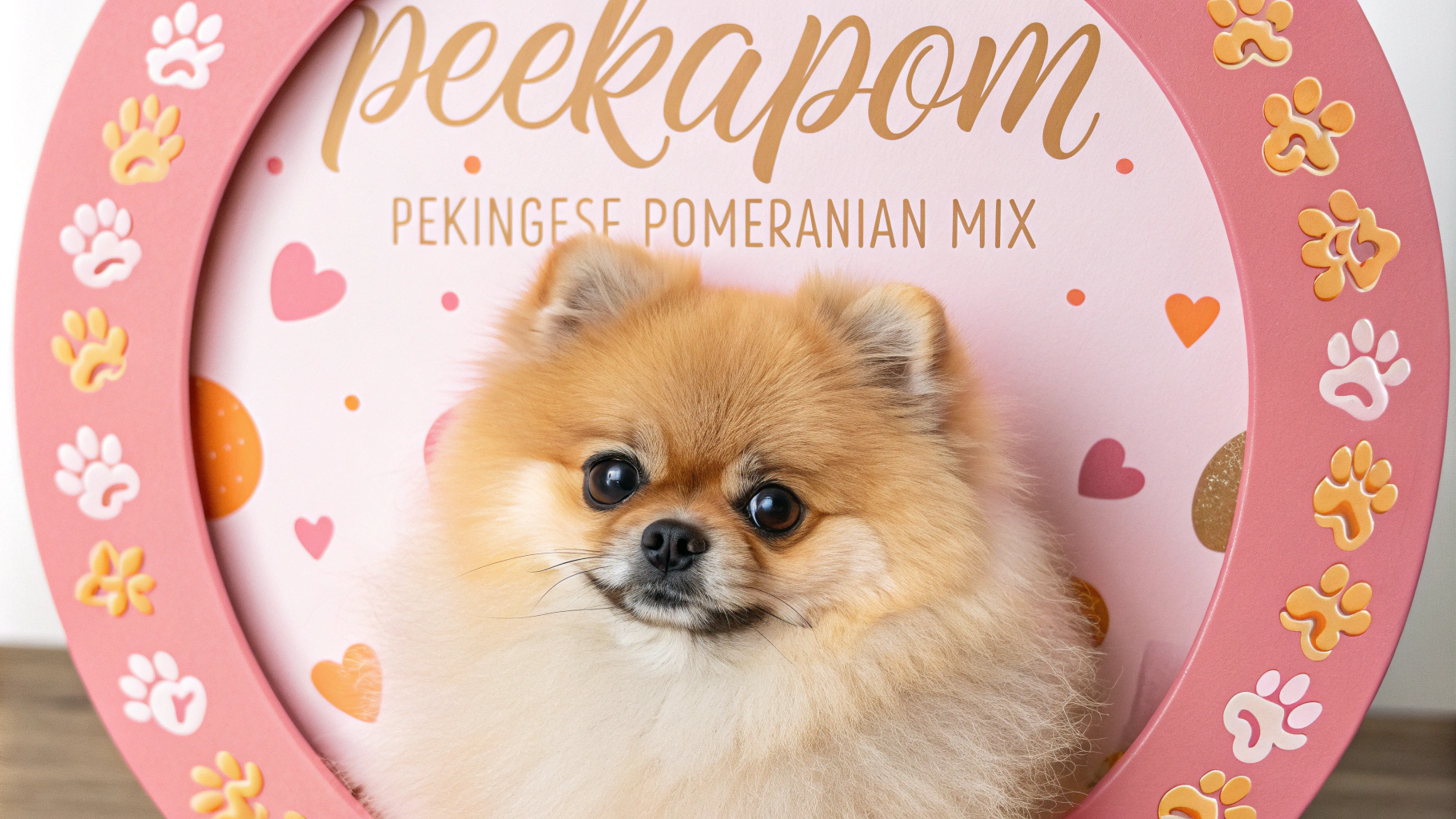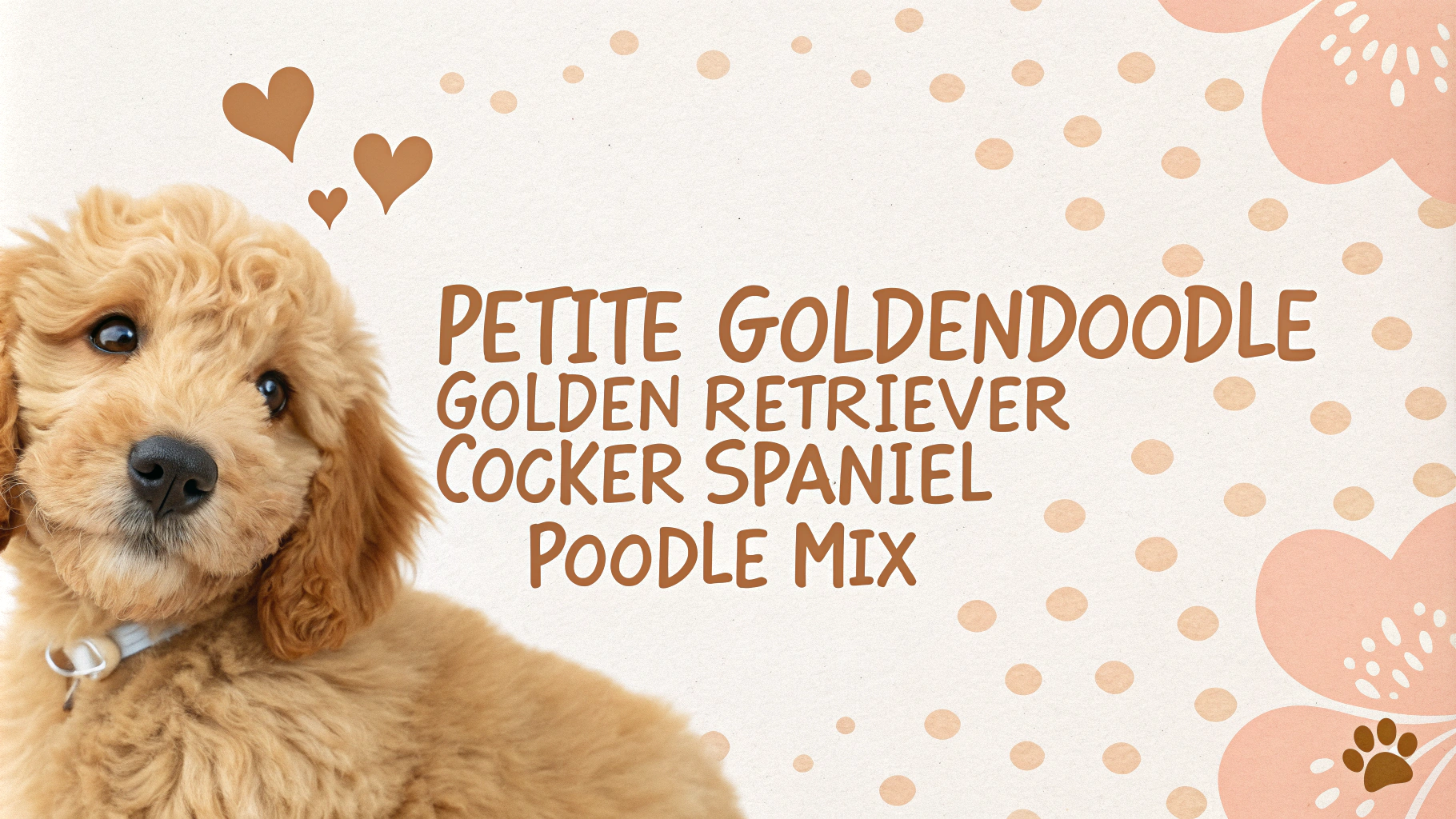The Bossi-Poo is a delightful mixed breed dog that combines the charming characteristics of the Boston Terrier and the intelligent Poodle. This designer dog breed offers a unique blend of traits from both parent breeds, resulting in a friendly, energetic, and adaptable companion. Bossi-Poos are known for their affectionate nature and make excellent family pets for those seeking a small to medium-sized dog with a playful personality.
Key Facts
- Size: Small to medium (10-25 pounds, 10-15 inches tall)
- Lifespan: 12-15 years
- Coat: Short to medium length, can be wavy or curly
- Colors: Black, white, brown, or a combination
- Temperament: Intelligent, playful, and affectionate
- Good with children: Yes
- Good with other pets: Generally yes, with proper socialization
- Shedding: Low to moderate
- Exercise needs: Moderate
- Trainability: High
Character Traits
Bossi-Poos inherit a blend of personality traits from both parent breeds, resulting in a charming and well-rounded companion. These dogs are known for their intelligence, a trait they inherit from the Poodle side, making them quick learners and easy to train. They also possess the friendly and outgoing nature of the Boston Terrier, which makes them excellent family pets and social butterflies.
One of the most endearing qualities of the Bossi-Poo is their affectionate nature. They form strong bonds with their families and are often described as velcro dogs, always wanting to be close to their owners. This mix tends to be playful and energetic, enjoying interactive games and activities with their human companions.
Bossi-Poos are generally good with children and other pets, especially when socialized from a young age. They inherit the Poodle’s adaptability, making them suitable for various living situations, from apartments to houses with yards. However, they may also inherit the Boston Terrier’s stubborn streak, which can sometimes present challenges during training.
These mixed breed dogs are often alert and make good watchdogs, barking to announce the presence of strangers. However, they are typically not aggressive and warm up quickly to new people once properly introduced. Their combination of intelligence, loyalty, and playfulness makes the Bossi-Poo an ideal companion for active individuals or families looking for a devoted and entertaining pet.
History & Origins
The Bossi-Poo is a relatively new designer dog breed, likely originating in the late 20th or early 21st century as part of the growing trend of creating mixed breed dogs. While the exact origins of the Bossi-Poo are not well-documented, we can look at the history of its parent breeds to understand its background.
The Boston Terrier, one half of the Bossi-Poo’s lineage, originated in Boston, Massachusetts in the late 19th century. Initially bred for pit-fighting, the breed evolved into a gentle companion dog. Recognized by the American Kennel Club (AKC) in 1893, Boston Terriers quickly gained popularity as the “American Gentleman” due to their tuxedo-like markings and charming personality.
The Poodle, the other parent breed, has a much longer history. Originally bred in Germany as a water retriever, Poodles later became popular in France, where they were refined into the elegant dogs we know today. Poodles are renowned for their intelligence and hypoallergenic coats, making them a popular choice for crossbreeding.
The creation of the Bossi-Poo likely stemmed from the desire to combine the Boston Terrier’s compact size and friendly nature with the Poodle’s intelligence and low-shedding coat. This mix aims to produce a small to medium-sized dog with a pleasant temperament and potentially hypoallergenic qualities, catering to families looking for an adaptable and low-maintenance pet.
As with many designer breeds, the Bossi-Poo is not recognized by major kennel clubs. However, it has gained popularity among dog enthusiasts who appreciate the unique blend of traits from both parent breeds. The continued breeding of Bossi-Poos has led to a more consistent appearance and temperament over time, although individual dogs may still vary significantly depending on which parent breed they take after more strongly.
Health Concerns
The Bossi-Poo, like many hybrid breeds, can inherit health issues from both parent breeds. Common concerns include:
- Eye problems: Both Boston Terriers and Poodles are prone to various eye conditions, including cataracts, glaucoma, and progressive retinal atrophy (PRA).
- Respiratory issues: Due to the Boston Terrier’s brachycephalic (flat-faced) features, Bossi-Poos may experience breathing difficulties, especially in hot or humid weather.
- Hip dysplasia: This genetic condition affecting the hip joint is common in both parent breeds and can lead to arthritis or lameness.
- Allergies: Skin allergies and food sensitivities are relatively common in both parent breeds and may affect Bossi-Poos.
- Patellar luxation: This condition, where the kneecap dislocates, is often seen in smaller dog breeds.
Regular veterinary check-ups, a balanced diet, and proper exercise can help mitigate some of these health risks. Responsible breeding practices can also reduce the likelihood of genetic health issues.
Exercise Needs
Bossi-Poos are generally active and energetic dogs that require regular exercise to maintain their physical and mental well-being. Their exercise needs typically include:
- Daily walks: At least 30-60 minutes of walking per day, split into two sessions if possible.
- Playtime: Interactive play sessions with toys, fetch games, or puzzle toys to stimulate their mind.
- Mental stimulation: Training exercises, nose work, or agility activities to keep their intelligent minds engaged.
- Swimming: If they inherit the Poodle’s love for water, supervised swimming can be an excellent low-impact exercise.
The exact exercise requirements may vary depending on the individual dog’s size, age, and energy level. It’s important to adjust the exercise routine as the dog ages or if health issues arise. Overexertion should be avoided, especially in hot weather, due to potential respiratory issues inherited from the Boston Terrier side.
Space Requirements
Bossi-Poos are generally adaptable dogs that can thrive in various living situations, including:
- Apartments: Their moderate size makes them suitable for apartment living, provided they receive adequate exercise and mental stimulation.
- Houses: A house with a small to medium-sized yard is ideal, giving them space to play and explore.
- Urban or suburban environments: They can adapt well to city life or suburban settings as long as their exercise needs are met.
Regardless of the living space, Bossi-Poos need a comfortable indoor area to rest and sleep. They should not be kept outdoors for extended periods, especially in extreme weather conditions. Access to a secure, fenced area for safe off-leash play is beneficial but not essential if regular walks and exercise are provided. It’s important to note that while they can adapt to smaller spaces, they still require daily outings and activities to prevent boredom and potential behavioral issues.
Nutrition & Feeding
Proper nutrition is crucial for maintaining the health and well-being of a Bossi-Poo. Consider the following guidelines:
- High-quality dog food: Choose a premium commercial dog food appropriate for their size, age, and activity level. Look for foods with high-quality protein sources as the main ingredient.
- Portion control: Follow feeding guidelines based on the dog’s weight and adjust as needed to maintain a healthy body condition. Overfeeding can lead to obesity, which can exacerbate health issues.
- Meal frequency: Adult Bossi-Poos typically do well with two meals per day, while puppies may require three to four smaller meals.
- Special dietary needs: Some Bossi-Poos may have food allergies or sensitivities. Work with a veterinarian to identify and address any specific dietary requirements.
- Treats: Use treats sparingly for training or rewards, ensuring they don’t exceed 10% of the daily caloric intake.
Always provide fresh, clean water. Monitor your dog’s weight and adjust food intake as necessary. Consult with a veterinarian for personalized nutrition advice, especially if your Bossi-Poo has any health concerns or special dietary needs.
Grooming Tips
The Bossi-Poo’s grooming needs can vary depending on which parent breed they take after more. Generally, they require moderate to high maintenance grooming. Here are some key grooming tips:
- Brushing: Brush your Bossi-Poo’s coat 2-3 times a week to prevent matting and tangles. If they have a curlier Poodle-like coat, daily brushing may be necessary.
- Bathing: Bathe your dog every 4-6 weeks, or as needed. Use a mild dog shampoo to avoid skin irritation.
- Haircuts: Professional grooming every 6-8 weeks is recommended to maintain coat health and appearance.
- Nail trimming: Clip nails regularly, typically every 2-3 weeks.
- Ear cleaning: Check and clean ears weekly to prevent infections, especially if they have floppy Poodle-like ears.
- Dental care: Brush teeth 2-3 times a week to maintain good oral hygiene and prevent dental issues.
Regular grooming sessions also provide an opportunity to check for any skin issues, lumps, or abnormalities. If your Bossi-Poo has facial wrinkles like a Boston Terrier, clean these areas regularly to prevent skin fold dermatitis.
Training Approach
Bossi-Poos are generally intelligent and eager to please, making them relatively easy to train. However, they can inherit some stubbornness from the Boston Terrier side. Here’s an effective training approach:
- Positive reinforcement: Use treats, praise, and play as rewards for good behavior. This breed responds well to positive motivation.
- Consistency: Maintain consistent rules and commands across all family members to avoid confusion.
- Early socialization: Expose your Bossi-Poo to various people, animals, and environments from a young age to ensure they grow into well-adjusted adults.
- Short, engaging sessions: Keep training sessions brief (10-15 minutes) but frequent to maintain their interest and prevent boredom.
- Mental stimulation: Incorporate puzzle toys and interactive games into training to challenge their intelligent minds.
- Patience: Be patient and consistent, especially if your dog exhibits any stubbornness inherited from the Boston Terrier side.
Start obedience training early and consider enrolling in puppy classes for socialization and basic commands. Bossi-Poos often excel in agility and other dog sports, which can be a great way to bond with your pet and provide both mental and physical stimulation. Remember that each dog is unique, so tailor your training approach to your individual Bossi-Poo’s personality and needs.
